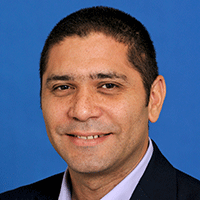
Orlando M. Ayala, Ph.D.
Director of Undergraduate Research
Endowed Ray Ferrari Professor of MechanicalEngineering Technology
Old Dominion University
Orlando Ayala, a Cum Laude graduate with a BS in Mechanical Engineering from Universidad de Oriente (Venezuela) in 1995, obtained his MS in Mechanical Engineering in 2001 and a Ph.D. in Mechanical Engineering in 2005 from the University of Delaware (USA). Currently serving as the endowed Ray Ferrari Professor in the Mechanical Engineering Technology Program at Old Dominion University, Norfolk, VA, he joined ODU in 2013. He was recently appointed as the ODU Director of Undergraduate Research. Prior to his tenure at ODU, Dr. Ayala spent three years as a Postdoctoral Researcher at the University of Delaware. His research focuses on multiphase flow simulation, high-performance parallel computing, scientific computation, and engineering education. He has taught courses in Fluid Mechanics, Heat Transfer, Thermodynamics, Multiphase Flows, and Mechanical Engineering Labs. Dr. Ayala possesses valuable industry exposure, having worked with engineering consulting firms on diverse projects, spanning petroleum, natural gas, brewing, and newspaper industries. He has actively contributed to professional organizations like ASME, notably in the Committee of Spanish Translation of ASME Codes and the ASME Subcommittee on Piping and Pipelines in Spanish. With a prolific research background, Dr. Ayala has authored about one hundred journal and peer-reviewed conference papers, presented his work globally, and maintains an average yearly citation rate over 45.
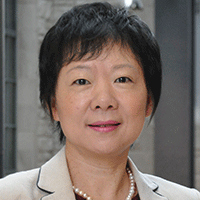
Wei Chen, Ph.D.
Wilson-Cook Professor in Engineering Design and
Chair of Mechanical Engineering
Northwestern University
Dr. Wei Chen is the Wilson-Cook Professor in Engineering Design and Chair of Department of Mechanical Engineering at Northwestern University. Directing the Integrated DEsign Automation Laboratory (IDEAL), her current research involves the use of statistical inference, AI, and uncertainty quantification techniques for design of emerging materials systems including microstructural materials, metamaterials and programmable materials. She serves as the Design Thrust lead for the newly funded NSF Engineering Research Center (ERC) on Hybrid Autonomous Manufacturing, Moving from Evolution to Revolution (HAMMER), where she works on digital twin systems for concurrent materials and manufacturing process design. Dr. Chen is an elected member of the National Academy of Engineering (NAE) and American Academy of Arts and Sciences (AAA&S). She served as the Editor-in-chief of the ASME Journal of Mechanical Design, the Chair of the ASME Design Engineering Division (DED), and the President of the International Society of Structural and Multidisciplinary Optimization (ISSMO). She currently serves as the chair of the ASME Mechanical Engineering Department Heads Executive Committee (MEDHEC). Dr. Chen is the recipient of the 2025 ASME Barnett-Uzgiris Product Safety Design Award, 2022 Engineering Science Medal from the Society of Engineering Science (SES), ASME Pi Tau Sigma Charles Russ Richards Memorial Award (2021), ASME Design Automation Award (2015), Intelligent Optimal Design Prize (2005), ASME Pi Tau Sigma Gold Medal achievement award (1998), and the NSF Faculty Career Award (1996). She received her Ph.D. from the Georgia Institute of Technology in 1995.
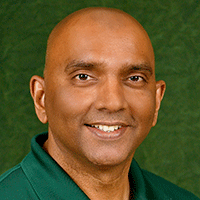
Harish P. Cherukuri, Ph.D.
Professor
University of North Carolina Charlotte
Harish P. Cherukuri is a Professor in the Department of Mechanical Engineering and Engineering Science at the University of North Carolina Charlotte. He obtained his PhD from the Department of Theoretical and Applied Mechanics at the University of Illinois at Urbana-Champaign in 1994. His research interests are in computational mechanics, modeling of material removal and metal-forming processes, high-temperature behavior of super-alloys, particle-based methods, and the application of machine learning in manufacturing and materials science. At UNC Charlotte, he usually teaches courses such as Engineering Analysis, Computational Methods for Engineers, Plasticity, and Finite Element Methods.
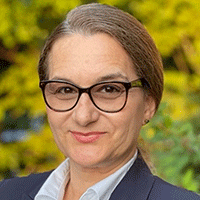
Carmen Cioc, Ph.D.
Professor
The University of Toledo
Dr. Carmen Cioc is a Professor in Mechanical Engineering Technology (MET) at The University of Toledo. Her lifelong interest with applied sciences began in childhood and led her to earn an B.S. and M.S. in Aerospace Engineering, a Ph.D. in Mechanical Engineering, and a second M.S. in Physics with a focus on photovoltaics.
At University of Toledo, Dr. Cioc has held numerous leadership roles, including MET Program Director, Graduate Program Director for the online M.S. in General and Energy Engineering programs, College of Engineering Graduate Assessment Coordinator, and Engineering Technology Department Assessment Director. She also serves as the Chair of the ASEE NCS Executive Board and Vice-Chair of the ASME MET Leadership Committee.
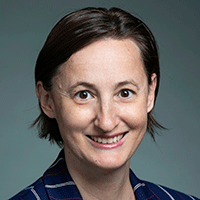
Leigh McCue-Weil, Ph.D.
Professor and Chair
George Mason University
From June 2015-December 2018 Leigh McCue was the executive director of the American Society of Naval Engineers. Prior to that, from December of 2004 through May of 2015, she was an Assistant, then Associate Professor in Virginia Tech’s Department of Aerospace and Ocean Engineering. Her research interests are in maritime robotics, nonlinear and chaotic vessel dynamics, and computational fluid dynamics, coupled with an emphasis on nurturing the future STEM workforce.
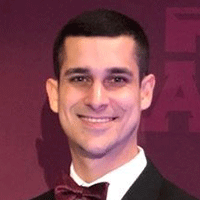
Sam Meleika, Ph.D.
Lead Engineering Faculty
Community College of Aurora
Dr. Sam Meleika is the lead engineering faculty at the Community College of Aurora (CCA) in Denver, Colorado. Prior to joining CCA he spent 3 years at the National Renewable Energy Laboratory (NREL) in Golden, CO. He received a B.S. in Mechanical Engineering from the University of California, Riverside and a Ph.D. in Mechanical Engineering from Texas A&M University. His Ph.D. research focused on developing new laboratory test methods for heating, ventilating, and air-conditioning (HVAC) equipment. Prior to completing his Ph.D., Dr. Meleika worked for 4 years in the aerospace/defense industry and 2 years in the biomedical industry. As an engineer he supported multiple aspects of product development, including manufacturing, design, and performance testing.
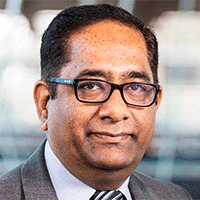
Rajan Kumar, Ph. D.
Professor and Chair of Mechanical & Aerospace Engineering
Professor and Chair of Mechanical & Aerospace Engineering,
FAMU-FSU College of Engineering
Florida A&M / Florida State University
Director, Florida Center for Advanced Aero-Propulsion (FCAAP)
Dr. Kumar's research interests are high-speed experimental aerodynamics, vortex-dominated flows, hypersonic flows, and hybrid flow control. Dr. Kumar has 30+ years of combined R&D experience at National Aerospace Laboratories and Florida A&M / Florida State University. At the national lab, Dr. Kumar worked on several projects involving projectile aerodynamics, high-angle-of-attack aerodynamics, and high-speed weapon integration programs. At FAMU-FSU, he worked extensively on unsteady aerodynamics, flow and noise control, inlet aerodynamics, cavity flows, separated flows, and flow diagnostics. Dr. Kumar led the design, development, and commissioning of a polysonic wind tunnel. Dr. Kumar has been a faculty advisor for 10+ post-doctoral, 25+ Ph.D., 25+ MS, and 100+ undergraduate students. He has published 130+ technical articles in major aeronautical and aerospace journals and conference proceedings. His research has been supported by ARO, AFOSR, ONR, AFRL, NASA, NSF, DOE labs, UCAH, Lockheed Martin, Northrop-Grumman, FAA, and multiple DoD SBIRs and STTRs.

Karim H. Muci-Kuchler, Ph.D.
Professor and Mechanical Engineering Academic Program Coordinator
Texas State University
Dr. Karim Muci-Kuchler is a Professor and Mechanical Engineering Academic Program Coordinator at the Ingram School of Engineering of Texas State University. Before joining Texas State University, he was a Professor of Mechanical Engineering and Director of the Experimental and Computational Mechanics Laboratory at the South Dakota School of Mines and Technology. He received his Ph.D. in Engineering Mechanics from Iowa State University in 1992. He has taught a wide variety of undergraduate and graduate engineering courses and his main interest areas include Engineering Education, Computational Mechanics, Product Design and Development, and Solid Mechanics. Dr. Muci-Kuchler is a Fellow of the American Society of Mechanical Engineers, co-author of a book about Adaptive Meshing with Boundary Elements, and author or co-author of over 85 publications. The latter include papers related to engineering education, the boundary element method, the friction stir spot welding process, and surrogate perforating projectile wounds, among others. He is an ABET PEV, has served as session chair or co-chair at international conferences, has reviewed papers for technical journals and conference proceedings, has served as panelist for the National Science Foundation (NSF), and has done consulting for industry in Mexico and the US.
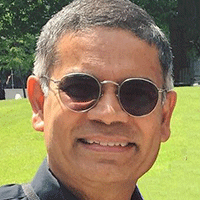
Rungun Nathan, Ph.D.
Professor and Program Chair for the Mechanical Engineering Department
Penn State Berks
Rungun Nathan, a professor and program chair for the mechanical engineering department, joined the faculty at Penn State Berks in 2007 as an assistant professor, was promoted in 2012 to associate professor and became full in 2021. He has over 25 combined years of increasing responsibilities in industry and in academia, including at the Centre for Development of Telematics (C-DOT), a telecommunications technology arm of the Indian government, the Indian Institute of Science (IISc.), Bangalore, and Villanova University, PA. Nathan received his BS from the University of Mysore, a postgraduate diploma from the Indian Institute of Science, an MS from Louisiana State University, and a PhD from Drexel University. He worked in electronic packaging in C-DOT and then as a scientific assistant in the robotics laboratory at IISc. in Bangalore, India, and as a postdoc at the University of Pennsylvania in haptics and virtual reality. His research interests are in the areas of brain traumatic injury, unmanned vehicles, particularly flapping flight and Frisbees, mechatronics, robotics, MEMS, virtual reality, and haptics, as well as teaching with technology. He has ongoing research in brain traumatic injury, flapping flight, frisbee flight dynamics, lift in porous material, and wound therapy. He is an active member of APS (DFD), ASEE, ASME, and AGMA, and is a reviewer for several ASME, IEEE, ASEE, and FIE conferences and journals. He is co-editor for ASEE publication Computers in Education. He also serves as a Program Evaluator for ABET. He has served as one of the organizers for MEED since 2021.

Dr. Jason Treadway
Director of the STEM Institute
Dallas College
Dr. Jason Treadway has served as the Director of the STEM Institute at Dallas College since 2017. Under his leadership, the STEM Institute has significantly expanded its programming, now reaching and serving more than 2,000 students annually across the Dallas College system. Programs like the STEM League, STEM Playbook, STEMCEL video chats, STEM Summit, STEMInsight.org, Undergraduate Research@Dallas College, TAMU Engineering Academy, and the mINiTERN are helping students bridge the gap between academics and the work force by providing experiential learning opportunities, industry partnerships, career readiness training, and exposure to real-world applications of STEM education.
Prior to joining Dallas College, Dr. Treadway worked in the private sector as an aerospace engineer and in informal STEM education at the Dallas Museum of Nature and Science, Perot Museum, and the Frontier of Flight Museum. He holds a Ph.D. in Structural Engineering from Imperial College London, a M.S. in Materials Science and Engineering from the University of Texas at Arlington, and a B.S. in Mathematics from Texas A&M Commerce.
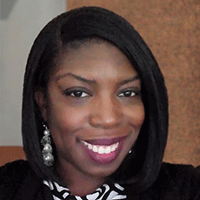
Geraldine Gooding, D.Eng.
Director, Engineering Education and Outreach
ASME
Geraldine Gooding, D.Eng. is an engineer, educator, entrepreneur, and change agent whose career spans over 15 years in the urban planning, engineering, and education fields. Dr. Gooding currently serves as Director of the Engineering Education & Outreach Department at the American Society of Mechanical Engineers (ASME), where she is tasked with guiding ASMEs strategic direction in engineering education, overseeing projects and initiatives impacting the global pre-college and college/university communities through innovative classroom and curriculum support, professional development, scholarships, and academic program accreditation (ABET). She leads with a commitment to advancing equity and inclusion within engineering, driving transformative initiatives that broaden participation and reimagines how learners of various backgrounds engage with STEM education, strengthening learning outcomes for all. Dr. Gooding holds degrees in Applied Mathematics & Statistics, Systems Engineering, and in City & Regional Planning and a Doctorate in Engineering Management.

Cheryl Hasan
Manager, Engineering Education and Outreach
ASME
Cheryl Hasan serves as Manager of the Engineering Education and Outreach for ASME. In this multifaceted role, she manages programs and activities related to the ASME mission in the quality assurance and advancement of formal engineering education; and evaluates, builds and manages the ASME Scholarship program. In collaboration with the Director of Education and Outreach, she serves as ASME co-principal liaison with the ABET staff, managing all ASME/ABET operational activities, annual program evaluator selection and assignment to ABET accreditation visits, ASME evaluator recruitment, selection, training, and evaluation and provides logistical management of MEEd.
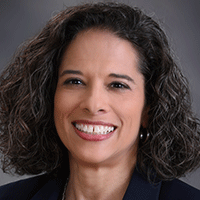
Kathleen Kosmoski
Director, Workforce Development
ASME
Kathleen Kosmoski is the Director of Workforce Development with American Society of Mechanical Engineers (ASME). In this position, Kosmoski is tasked to refine and implement the Society’s strategic direction for workforce development and manage and contribute to the creation of new programs, partnerships, and initiatives that address the mechanical engineering and technical workforce shortage, including ASME's Community College Engineering Pathways (CCEP) program. Over the past three years, she has added two team members, expanded the CCEP program to include 57 community colleges, developed and implemented a project-based experiential learning program, and in June 2024 was awarded a 4-year $4 million grant from the US Department of Labor to develop a registered mechanical engineering technology apprenticeship program.
Ms. Kosmoski has over 17 years of experience in workforce development and continuing education/professional development training. Prior to joining ASME, she was responsible for developing, implementing, and evaluating the short-term, non-credit continuing education and workforce development programs at Ogeechee Technical College in Statesboro, GA. She has worked with numerous businesses and industries to identify and address the workforce needs of the companies through customized training programs. While at Ogeechee Tech, Ms. Kosmoski established and managed partnership with and between businesses, non-government organizations, higher education, and public K-12 systems. Through these collaborations, she created a one-of-a-kind, Industrial Maintenance Fast-Track program for regional industries that focused on training and up-skilling employees to fill highly skilled technician positions. This program is now a model program that is being implemented by other technical colleges in Georgia within various business sectors. She also established several non-credit Department of Labor recognized apprenticeship programs with local manufacturers to help address local workforce needs.
Kosmoski earned a Bachelor of Arts degree in community health and a Master of Science degree in health promotion from Purdue University in West Lafayette, IN. She is a past president of the Georgia Continuing Education Association (formerly Georgia Adult Education Association).